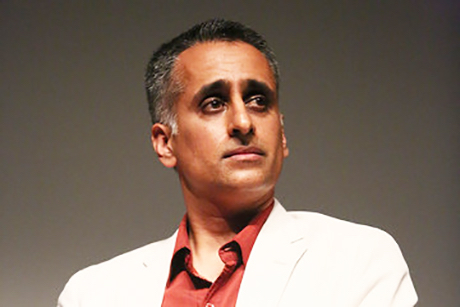TAKING ON IVY LEAGUE: INTERVIEW WITH ‘EXCLUSION U’ DIRECTOR GINGER GENTILE
Activist director sets sights on elite universities

Ginger Gentile/Core Media
Spin the wheel and land on a current hot-button topic that incites anger on either side of the political spectrum and puts grass-roots activists on a collusion course with powerful, moneyed institutions: gun control, abortion, transgender intolerance, immigration, agenda-based news organizations, and of course evergreen racial dynamics.
Roiling in the margins awaits another issue destined for the center stage: the shocking and permissive financial shenanigans of institutions of higher education. Tangential issues—student loan forgiveness, the influence of “woke” progressive professors, the protests of ultraconservative guest speakers—already are popping up in headlines across the nation.
Ginger Gentile’s new documentary, Exclusion U, launches headlong into the controversies, hidden and no-so, of how universities, particularly the Ivy League, sit on billions of dollars while refusing to expand enrollments. It’s a topic ready-made for Gentile, who describes herself as an activist documentary filmmaker who prefers to take on “issues that people don’t want to talk about.”
Her previous documentary, Erasing Family (2022), explores trauma children of divorce suffer when a parent is erased from their lives. That film was financed through a crowdfunding campaign. Gentile also produced several independent films during her post-college stint in Argentina. Her experiences as a Jewish person living in Buenos Aires may very well inspire a future documentary about Jews in Latin America, she says.
When it comes to scandals within the corridors of higher education, Gentile, an Ivy Leaguer herself, knows of what she speaks. As a student at Columbia University, she had a love-hate relationship with her alma mater.
“The education was amazing,” Gentile recalls, but she didn’t cotton to some of the same institutional issues she takes on in her film. “I was always protesting. My time at Columbia informed my outlook on how Ivy League functions.”
Gentile’s film takes on myriad issues: economics, race, politics, legacy benefactors, beleaguered financial aid efforts, intentional exclusivity and even gentrification. But the centerpiece is certainly the issue of endowments. Exclusion U carefully lays out how Ivy League institutions hoard billions of dollars through financial set-asides. The endowments grow exponentially into a largess that rarely find its way back to those who need it most, low-income students and the communities that surround and support the universities.
“I always knew that schools had endowments,” Gentile says. But the extent to which donations and assets are funneled away was staggering to discover. “Everything is public, but not widely known. All these things they do are legal,” she adds.
In addition to students, Gentile’s documentary has many former educators, administrators and admission officials as talking heads. Was there a concern of upsetting the Ivy League culture?
“I only interviewed people who wanted to talk,” she said. “There was fear from students from Harvard compared to other universities. Harvard is such a powerful institution.”
She adds, “Everything is fact-checked. They may not like it but it’s all true.”
Looking to the future, Gentile has her eyes on the subject of math.
“I’d love to do a film about people’s fear and hatred of mathematics,” she says. “Also, I have an interest in the Manifest Movement,” as well as the previously mentioned exploration of Jewish people living in Latin America.
What does she hope viewers will take away from the film?
“That there are schools with a lot of money and power because we allowed them to have those things,” she says. “It’s time for us to do something about it.”
Exclusion U is produced by Veronica Nickel (Moonlight) and includes interviews with Davarian Baldwin (In the Shadow of the Ivory Tower), Tressie McMillan Cottom (Lower Ed), Anthony Jack (The Privileged Poor), Jeff Selingo (Who Gets In and Why) Dan Golden (The Price of Admission) Richard V. Reeves (Brookings Institution), Lauren Rivera (Northwestern University), and Deja Foxx (influencer/staffer for Vice President Kamala Harris).
The film will be released on June 23, and will be available on various on-demand platforms including iTunes, Amazon, and GooglePlay.
Official site here
| Marvin Brown’s Movie Review Archive








